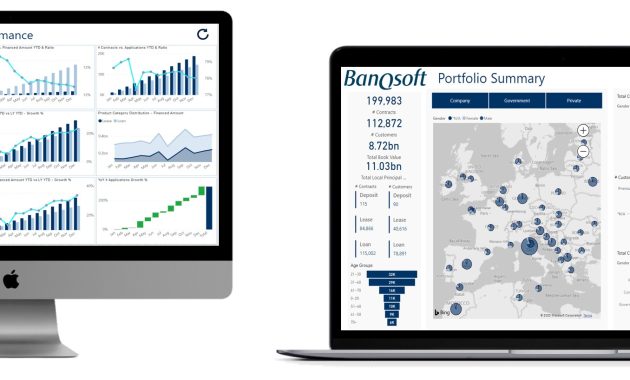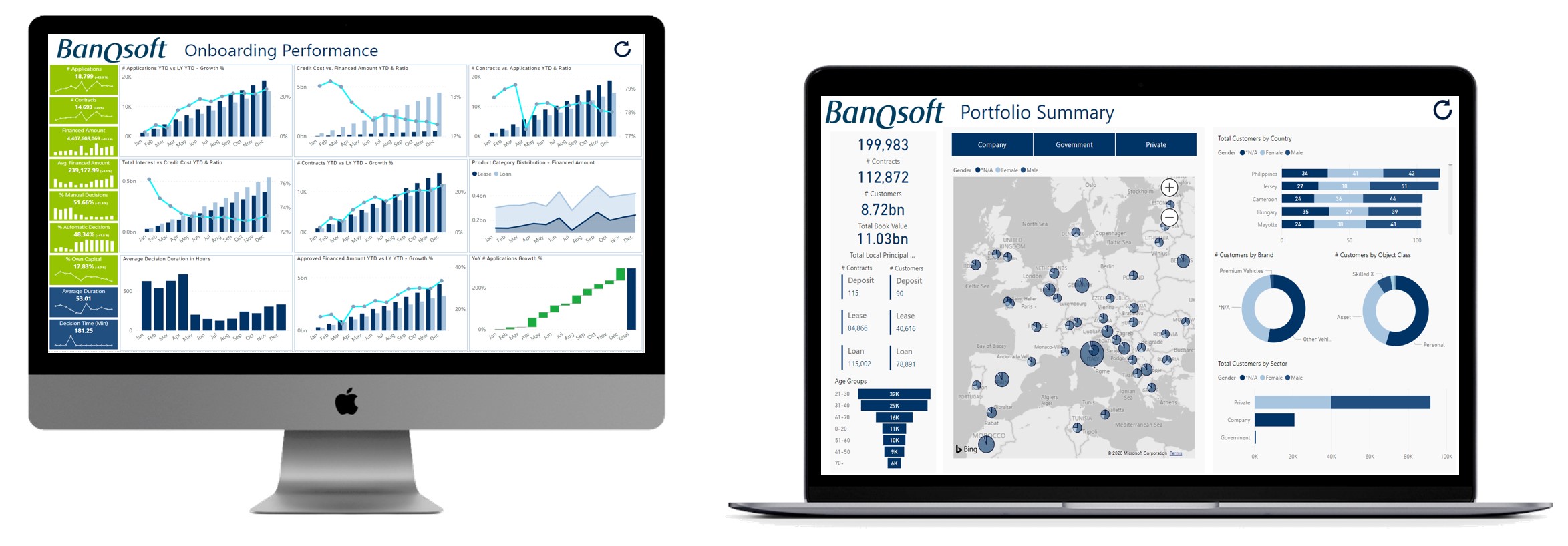
Self-Service Business Intelligence Software: The Future of Data Analysis
In today’s fast-paced business environment, data is no longer a luxury—it’s a necessity. Companies across all sectors are realizing the power of data-driven decision-making. This shift has led to a surge in demand for tools that make data accessible and actionable for everyone. Enter self-service business intelligence (BI) software, a game-changer for teams seeking to unlock the potential of their data.
Self-service business intelligence software is designed to empower users with little to no technical expertise. It allows them to explore data, create reports, and build dashboards without relying on IT or data science teams. This democratization of data analysis is transforming how businesses operate. Teams are now equipped to make informed decisions quickly and efficiently.
This article delves into the world of self-service business intelligence software. We will explore its benefits, key features, and how it’s revolutionizing the way teams work with data.
The Rise of Data Democratization
Traditionally, data analysis was the domain of specialized professionals. Data analysts and scientists were responsible for extracting, cleaning, and interpreting data. They then would create reports for business users. This process was often slow, cumbersome, and created a bottleneck. Business users had to wait for analysts to provide insights. This delay hindered timely decision-making.
Self-service business intelligence software addresses these limitations by putting the power of data directly into the hands of the users. Now, marketing teams can analyze campaign performance in real-time. Sales teams can track their progress against targets. Finance teams can monitor key financial metrics. This shift has freed up IT and data science teams to focus on more complex projects. It has also empowered business users to become more data-literate.
Key Features of Self-Service BI Software
Self-service business intelligence software offers a range of features designed to make data analysis accessible and intuitive. Here are some of the most important ones:
- Data Connectivity: The ability to connect to a wide variety of data sources is crucial. This includes databases, cloud platforms, spreadsheets, and more.
- Data Preparation: Tools for cleaning, transforming, and preparing data are essential. This ensures data accuracy and consistency.
- Data Visualization: Interactive dashboards and reports are key for communicating insights. These tools allow users to visualize data in various formats, such as charts, graphs, and maps.
- Drag-and-Drop Interface: A user-friendly interface allows users to build reports and dashboards without any coding.
- Collaboration: Features that enable users to share insights, collaborate on reports, and comment on findings are important for teamwork.
- Mobile Access: The ability to access data and insights on mobile devices is becoming increasingly important.
- Advanced Analytics: Some self-service business intelligence software offers advanced analytics capabilities, such as predictive modeling and machine learning.
Benefits for Teams Using Self-Service BI
The adoption of self-service business intelligence software brings numerous benefits to teams across an organization. These include:
- Faster Decision-Making: Users can access and analyze data in real-time, enabling them to make quicker and more informed decisions.
- Increased Efficiency: Automating data analysis tasks frees up time for other important activities.
- Improved Data Literacy: Self-service business intelligence software encourages users to become more data-literate. This helps them understand and interpret data more effectively.
- Enhanced Collaboration: The ability to share insights and collaborate on reports promotes teamwork and knowledge sharing.
- Reduced Reliance on IT: Business users no longer need to rely on IT or data science teams for basic data analysis tasks. This allows these teams to focus on more complex projects.
- Cost Savings: By empowering users to analyze data independently, companies can reduce the need for expensive data analysis services.
Choosing the Right Self-Service BI Software
Selecting the right self-service business intelligence software is crucial for success. Several factors should be considered when making a choice:
- Ease of Use: The software should have a user-friendly interface that is easy to learn and use.
- Data Connectivity: Ensure the software can connect to all the data sources your team needs.
- Features: The software should offer the features your team needs, such as data visualization, reporting, and collaboration tools.
- Scalability: The software should be able to handle your current data volumes and grow with your needs.
- Pricing: Consider the pricing model and ensure it fits your budget.
- Support: Check the level of customer support offered by the vendor.
Some popular self-service business intelligence software options include Tableau, Power BI, Qlik Sense, and Looker. Each of these platforms offers a range of features and capabilities. Researching each platform and comparing their strengths and weaknesses is key.
Real-World Applications of Self-Service BI
Self-service business intelligence software is being used across various industries and departments. Here are some examples:
- Marketing: Marketing teams can use self-service business intelligence software to track campaign performance, analyze website traffic, and understand customer behavior.
- Sales: Sales teams can use it to track sales performance, identify sales opportunities, and forecast sales.
- Finance: Finance teams can use it to monitor financial performance, analyze budgets, and identify cost-saving opportunities.
- Human Resources: HR teams can use it to track employee performance, analyze employee turnover, and improve recruitment processes.
- Operations: Operations teams can use it to monitor production efficiency, track inventory levels, and optimize supply chain management.
These are just a few examples. The applications of self-service business intelligence software are vast and continue to grow as more teams adopt these powerful tools.
The Future of Self-Service BI
The future of self-service business intelligence software is bright. As data volumes continue to grow, and the demand for data-driven insights increases, the need for these tools will only grow. We can expect to see several key trends in the coming years:
- Increased Automation: Automation will play a larger role in data preparation and analysis, making it even easier for users to gain insights.
- Artificial Intelligence (AI) Integration: AI and machine learning will be integrated into self-service business intelligence software to provide advanced analytics capabilities.
- Enhanced Collaboration: Collaboration features will become more sophisticated, enabling teams to work together more effectively on data analysis projects.
- Mobile-First Design: Mobile access and mobile-optimized dashboards will become even more important.
- Focus on Data Governance: Data governance and security will become more critical as organizations manage more data.
Self-service business intelligence software is poised to become even more powerful and accessible in the years to come. It will continue to empower teams to make data-driven decisions and gain a competitive advantage.
Getting Started with Self-Service BI
Implementing self-service business intelligence software requires careful planning and execution. Here are some steps to get started:
- Define Your Goals: Clearly define your business goals and the data you need to achieve them.
- Choose the Right Software: Research and select the self-service business intelligence software that best fits your needs.
- Prepare Your Data: Ensure your data is clean, accurate, and properly formatted.
- Train Your Team: Provide training to your team on how to use the software effectively.
- Start Small: Begin with a pilot project to test the software and get feedback from users.
- Iterate and Improve: Continuously improve your data analysis processes and the use of the software.
By following these steps, teams can successfully implement self-service business intelligence software and unlock the power of their data. This will lead to better decisions and improved business outcomes.
Conclusion
Self-service business intelligence software is transforming how teams work with data. It empowers business users to make data-driven decisions. It also accelerates the decision-making process. By providing easy-to-use tools, these platforms allow teams to analyze data effectively. They can create reports and dashboards without technical expertise. As businesses increasingly rely on data, self-service business intelligence software will become even more essential.
By embracing this technology, organizations can gain a competitive edge. They can unlock valuable insights and drive better business outcomes. The future of data analysis is here, and it’s accessible to everyone.
[See also: Related Article Titles]

